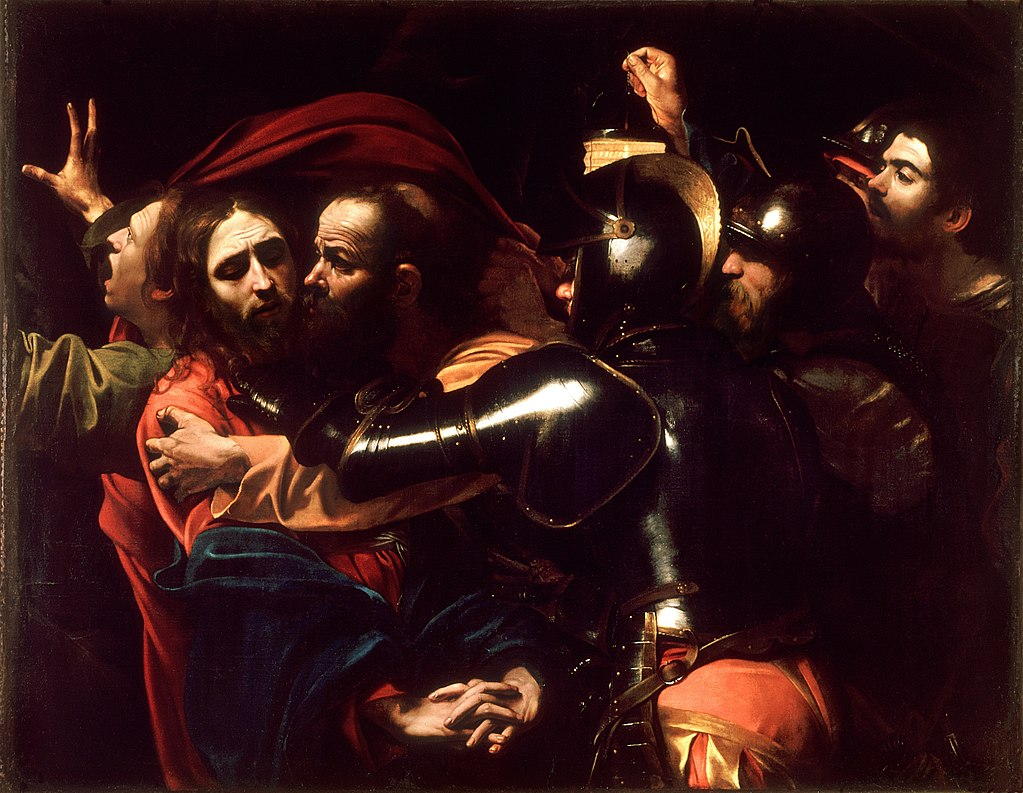While he was still speaking, behold, Judas, one of the twelve, came, and with him a great multitude with swords and clubs, from the chief priests and elders of the people. Now he who betrayed him had given them a sign, saying, “Whoever I kiss, he is the one. Seize him.” Immediately he came to Jesus, and said, “Greetings, Rabbi!” and kissed him. Matthew 26:47-49
It is easy to mentally gloss over detail, never engaging the imagination, when we read or hear stories from the Bible; especially if they have been heard many times. An image like this one, which freezes and expands a single moment, can help us remember to use our imagination and sit a little longer with a moment in a story.
This painting by Caravaggio intensely portrays the moment Judas betrays Jesus with a kiss. The Roman soldiers, here depicted in ‘contemporary’ armor for effect, spring into action, and the disciples panic. The dark chiaroscuro shadows and intense spotlighting, the swirling visual movement of arms and cloaks, and the crowded cropped close-up composition all communicate the chaos of the scene. Imagine being one of the disciples, not knowing the story or what will happen in an hour, a day, three days… just knowing that their own friend has betrayed the Messiah, and that the Messiah is being taken into the hands of His enemies who want to kill Him… and that He is going willingly. Imagine the confusion and fear and anger! Even Judas seems conflicted and a little taken aback. Christ’s face, though pained, is like the stillness in the eye of the storm in this painting. He knows what is about to happen. It is the whole reason why He came.
Caravaggio is perhaps the most masterful of the Italian Baroque masters. He enjoyed success and fame in his lifetime for his striking realism and theatrical use of lighting and composition. His Biblical paintings usually depict the extremely intense climactic moments of a story and are often violent and/or full of psychological complexity and turmoil. His own life was full of turmoil, because of his violent and erratic behavior, much of what we know about his life we know from his criminal records. It is unclear whether he ever believed in Scripture, or just painted for the church to pay the bills. He understood firsthand strong emotion, chaos, and violence, and that is why his paintings are so effective. Whether his own heart was in the right place or not, we can use his paintings to engage our imagination with the stories of scripture and let the reality of what happened in those stories stir our hearts.
Painting found in National Gallery of Ireland, Dublin
Want to see more? Like, follow & share… https://www.facebook.com/comemeetjesus.art
Buy the coffee table book at https://www.comemeetjesus.art
